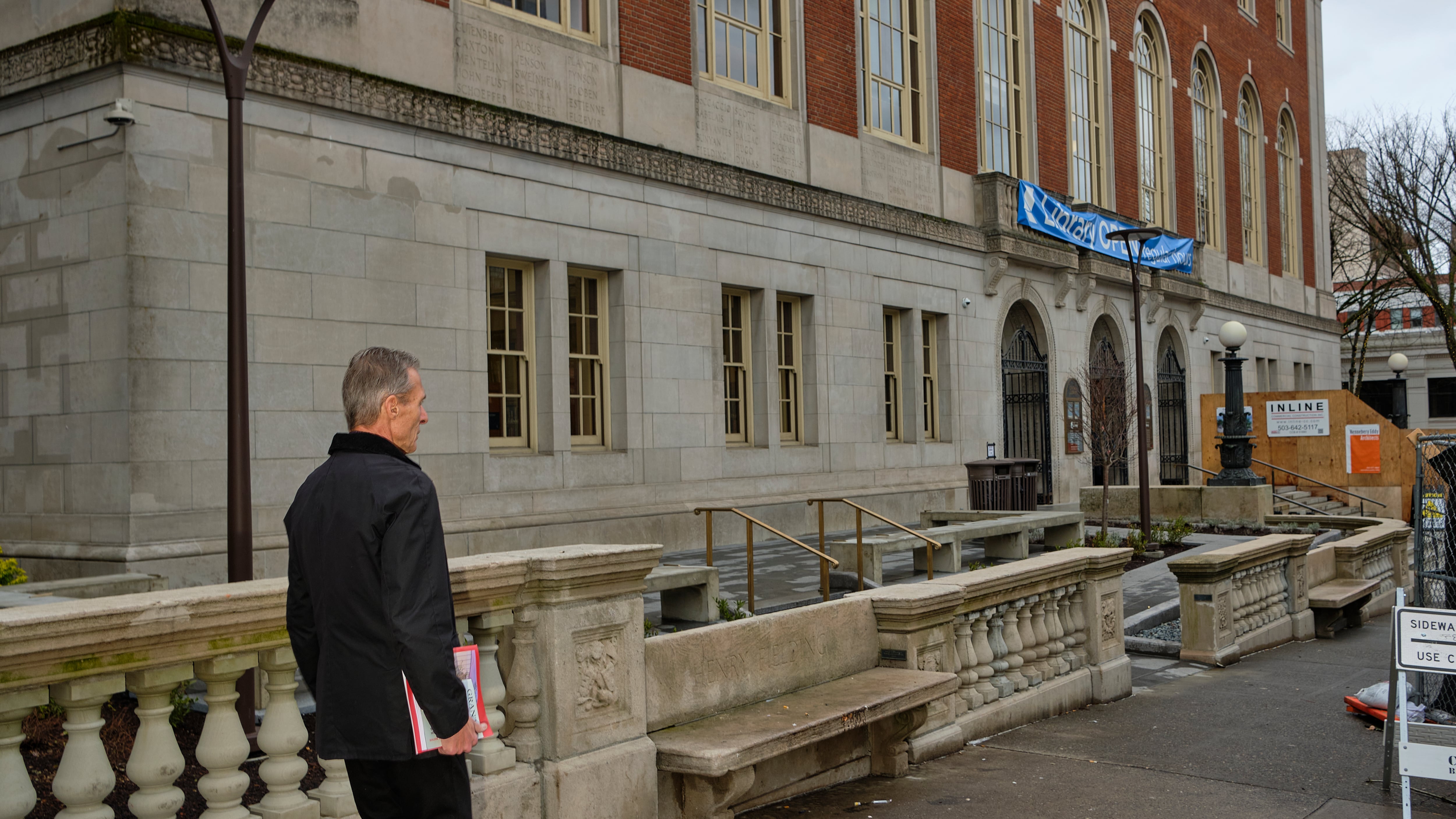Bruce Silverman is hopping mad about the changes coming to Multnomah County’s Central Library.
In a letter to library patrons two weeks ago, Vailey Oehlke, the county’s director of libraries, described a “refresh” to the stately Georgian structure that turns 110 this year.
Oehlke heralded a reimagined library. “I’m confident in what we will deliver—new spaces that aren’t just for storing books, but are catalysts for community experiences of learning, growth and discovery,” she wrote, without providing details.
But an internal communication obtained by WW shows wholesale changes are afoot at 801 SW 10th Ave.: After a nine-month closure beginning in March, gone will be much of the oak furniture, stone countertops, and tall shelves—and nearly half of publicly accessible books and periodicals.
In an interview, Oehlke noted the library has changed little since Google upended the way people seek information. “The transition from being storage places for books and bookshelves to places that are really centered on the human experience in those spaces is exactly what needs to be happening,” she says.
Silverman, 70, a retired property manager who lives in Northwest Portland, visits the main library regularly. He laments the planned changes.
“I am appalled,” Silverman says. “This is the murder of an essential piece of our community.”
We asked the questions he and others want answered.
What’s the budget and where’s it coming from?
The two-part “refresh” of Central is budgeted at $20.9 million. Of that amount, $12.85 million comes from a $387 million bond voters approved in 2020. The bond called out the construction of a new east county library and the renovation of eight branch libraries. It didn’t mention closing Central Library for nearly a year. Oehlke says nobody hid the ball, but as her team began examining work at other branches, it was clear they needed to update the county’s main library.
Why will nearly half central’s books and periodicals disappear?
The number of books and periodicals that are publicly accessible at Central will shrink from 394,723 to 198,534, a reduction of 49.7%. In their place? More open space for library users, including specific areas for groups such as teenagers who may now feel underserved.
Silverman hates that. “Anyone who seeks to increase their knowledge in any of the arts or sciences needs to see how well a book is illustrated before they can know if it will be useful to them,” he says. “Any lover of fiction needs to sample a few paragraphs to determine whether they can enjoy the author’s writing style.”
Oehlke acknowledges that change but says materials will still be available—less visible but more efficiently retrieved. “Books will continue to be a priority,” she says. “The overall collection won’t be reduced in size—just how people access it will.”
Why get rid of durable, custom-made furniture and service desks?
The refresh will include the removal of some bookshelves and the downsizing of others. The goal is to create more usable, flexible and safer space, with more outlets for charging devices.
“Lower stack heights allow staff better visibility across individual rooms, and it allows patrons better visibility as well,” says library spokesperson Shawn Cunningham. “It helps staff spot inappropriate or problematic behavior if it occurs.”
That’s also the explanation for getting rid of some tables, chairs and desks. “The furniture at Central Library reflects dated and inflexible practices,” Cunningham says. “Currently, those materials and surfaces are large, heavy, fixed and uncomfortable for many users.”
What’s unsaid but implied: Central Library has long been a gathering place for unhoused Portlanders, and management is trying to adjust the physical surroundings to that reality.
Silverman is pessimistic. “If Vailey Oehlke thinks people don’t read books anymore, she should just close the libraries,” he says. “Multnomah will be the last county in the nation in terms of an informed citizenry, but we’ll have the largest warming shelter.”
Oehkle sees it differently. “Apart from parks, libraries are arguably the most public spaces in any community,” she says. “There’s an expectation and a responsibility for us to provide space in a way that respects people, no matter their background.”

